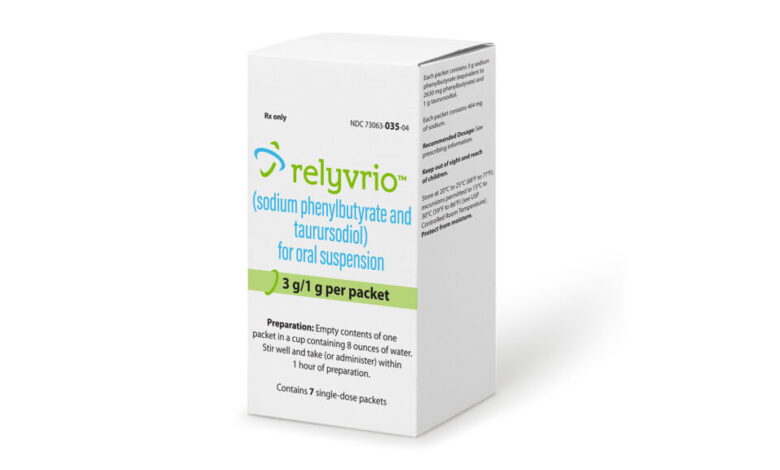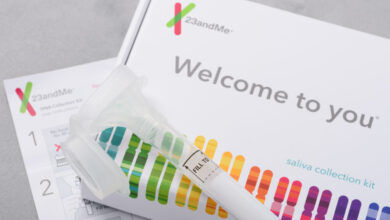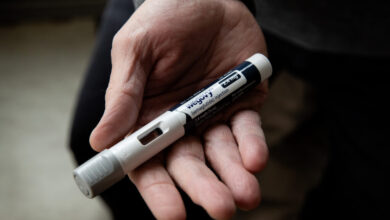Eli Lilly, Amylyx, Johnson & Johnson

Want to stay on top of the science and politics driving biotech today? Sign up to get our biotech newsletter in your inbox.
So the GLP-1s strike again: Eli Lilly’s Zepbound seems to work in obstructive sleep apnea as well. Beyond that, we see up close how Amylyx’s ALS drug — which it is pulling from the market — really didn’t differ much from placebo, and see more market and investment potential for psychedelics.
The need-to-know this morning
- Sage Therapeutics said an experimental drug failed to improve cognition versus a placebo in a mid-stage study of Parkinson’s disease. The company is conducting additional studies of the drug, called SAGE-718, in Huntington’s disease and Alzheimer’s disease, with results expected later this year.
- Brainstorm Cell Therapeutics, a developer of a cell therapy for ALS, said its co-CEO, Stacy Lindborg, is leaving the company.
- Future Pak, a privately held drug and nutraceutical manufacturer, made an unsolicited offer to acquire Vanda Pharmaceuticals.
Eli Lilly’s Zepbound shows efficacy in sleep apnea
Eli Lilly’s GLP-1 obesity drug, Zepbound, helped decrease the symptoms of obstructive sleep apnea in a Phase 3 study — allowing it to potentially become the first approved treatment for this disorder. The trial showed that obese or overweight patients with apnea who weren’t on PAP therapy had 25.3 fewer events per hour on an index measuring the amount of times breathing stops or is restricted while sleeping. In comparison, patients on placebo had 5.3 fewer events.
The company will present results at the American Diabetes Association conference in June. It plans to submit for regulatory approval for moderate-to-severe obstructive sleep apnea in the middle of this year. The FDA already said it would expedite the review.
The new Zepbound study results triggered a drop in the stock prices of sleep apnea device makers. Inspire Medical Systems, Resmed, Nyxoah, and Koninklijke Philips were all trading down in Wednesday’s pre-market session.
Amylyx’s Relvyvrio data was, as promised, disappointing
Amylyx Pharmaceuticals recently said it would pull its ALS drug Relyvrio from the market. After taking a look at a slide deck of data from the company’s Phase 3 PHOENIX trial, we can clearly see why. Over the course of 48 weeks, there was virtually no difference between the placebo and trial arms:
A smaller, earlier trial — CENTAUR — that underpinned the drug’s approval demonstrated a 25% slower decline in function, and showed that the median survival of patients taking Relyvrio was 4.8 months longer. But the PHOENIX trial was a larger study with a slightly different patient population: About a quarter of the participants met “CENTAUR-like” criteria, meaning they were similar to the participants in the earlier trial; the rest were different. Also, in the new study, most patients were in Europe.
Spravato could bring in nearly $1 billion
Spravato, Johnson & Johnson’s esketamine nasal spray for treatment-resistant depression, is scraping a $1 billion run rate, Jefferies analysts say.
“We think Spravato’s strong sales trajectory supports [the] notion psychedelics can become commercially viable for mental health,” including outside of the U.S., Jefferies writes. This could also increase the perception that psychedelics are worthy of further investment, they say. This is good news for other companies in this space like ATAI Life Sciences and Lykos Therapeutics, which are developing treatments for mental health disorders using drugs like MDMA and psilocybin.
Cell therapy player Cullinan expands to autoimmune disease, changes name
A cell therapy company is broadening its scope to include autoimmune disease, and is changing its name accordingly. Cullinan Oncology is now Cullinan Therapeutics, and it will focus first on systemic lupus erythematous. The company just closed a $280 million round of private placement financing, which should keep it financially viable through 2028.
The company is developing a cell therapy called CLN-978 that it hopes will be an off-the-shelf treatment for lupus and perhaps other autoimmune diseases. Research is increasingly demonstrating that CAR-T therapies, typically used for blood cancers, could be effective in autoimmune disease.
“Overall, we think the move into autoimmune for CLN-978 has strong scientific rationale, bolstered by superlative efficacy data for CD19 CAR-T therapies in autoimmune diseases,” Leerink analysts wrote in a note.
Pfizer veteran becomes newest partner at Canaan
Venture firm Canaan has a new partner: Uwe Schoenbeck, a longtime Pfizer executive who most recently has served as chief scientific officer for its external science and innovation division. He’ll be in charge of investing in or creating new companies with the Menlo Park firm’s latest fund. He led the recent $132 million Series B financing for Alterome Therapeutics, and now serves on its board of directors.
Schoenbeck has been at Pfizer since 2008, where he helped create or advance dozens of early stage companies through seed and equity investments. Pfizer ultimately acquired several. He was also a key figure in collaborating with BioNTech to jointly develop the blockbuster mRNA vaccine for Covid-19.
More reads
- Johnson & Johnson tops quarterly profit estimates as medical device sales jump, CNBC
- Takeda inks $1.2 billion deal with Kumquat for immuno-oncology program, FierceBiotech
- Charles River promises $500 million for initiative to develop alternative testing methods and reduce use of animals, Endpoints



